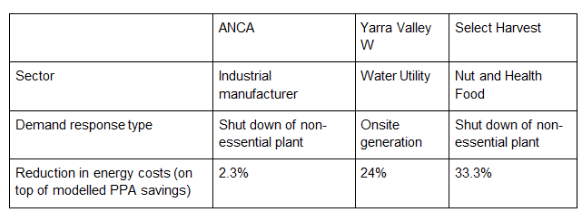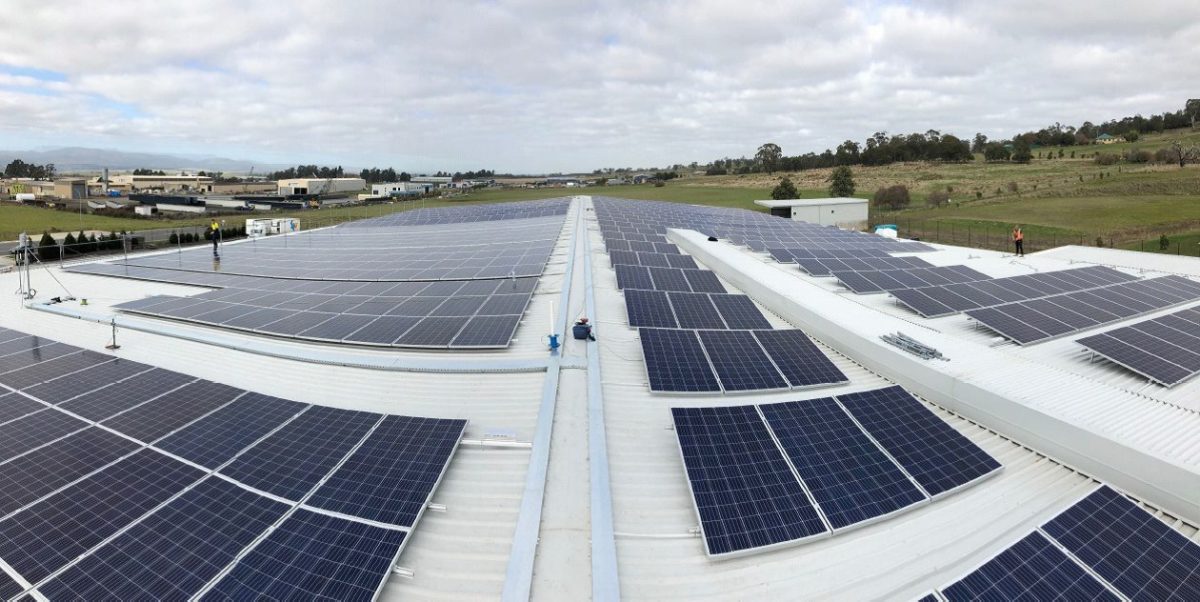Large industrial electricity consumers in Australia have been turning to renewable PPAs, seeking to ensure certainty of supply and pricing. A new report shows that combining these purchase agreements with demand response measures can yield even greater savings.
According to new research from the Institute for Sustainable Futures, University of Technology Sydney, in partnership with WWF-Australia, and energy retailer Flow Power, Australian businesses could save up to 33.3% on energy costs a year on top of that delivered by a PPA by combining it with demand response.
The report Best of Both Worlds: Renewable Energy and Load Flexibility for Australian Business Customers focuses on three large Victorian-based businesses – industrial manufacturer ANCA, water utility Yarra Valley Water and food company Select Harvest, as representatives of different industries.
Taking into account varying approaches to demand response, such as shutdowns of nonessential equipment and on-site electricity generation, the report showed that all three businesses have locked in additional savings ranging up to 33.3% on top of financial savings provided through corporate PPAs.
“Where the financial savings delivered to customers on corporate renewable PPAs over the last year are just a small snapshot of ten-year or more agreement, demand response gives businesses greater flexibility to control the prices that they pay,“ says Matthew van der Linden, Managing Director of Flow Power.

Corporate PPAs in Australia have been on the rise, as an alternative for some of the utility scale projects currently under development that may encounter difficulties in signing a long-term offtake agreement with a utility.
Australia’s largest solar PPA contracting for 88 MW was recently inked by Bluescope Steel with ESCO Pacific to cover 20% of its electricity requirements over seven years from NSW’s Finley Solar Project. Other notable ones were signed by SIMEC ZEN Energy and Australian brewer CUB, as well as the University of New South Wales, which is seeking to become 100% solar powered.
According to Bloomberg New Energy Finance‘s 2H Corporate Energy Market Outlook report, published on Friday, corporate purchasing set a new global record last year, surpassing 5.4 GW of clean energy procured, with more than 1.1 GW purchased by Facebook alone.
The report also showed that corporations have procured 7.2 GW of clean energy so far in 2018.
This content is protected by copyright and may not be reused. If you want to cooperate with us and would like to reuse some of our content, please contact: editors@pv-magazine.com.









2 comments
By submitting this form you agree to pv magazine using your data for the purposes of publishing your comment.
Your personal data will only be disclosed or otherwise transmitted to third parties for the purposes of spam filtering or if this is necessary for technical maintenance of the website. Any other transfer to third parties will not take place unless this is justified on the basis of applicable data protection regulations or if pv magazine is legally obliged to do so.
You may revoke this consent at any time with effect for the future, in which case your personal data will be deleted immediately. Otherwise, your data will be deleted if pv magazine has processed your request or the purpose of data storage is fulfilled.
Further information on data privacy can be found in our Data Protection Policy.